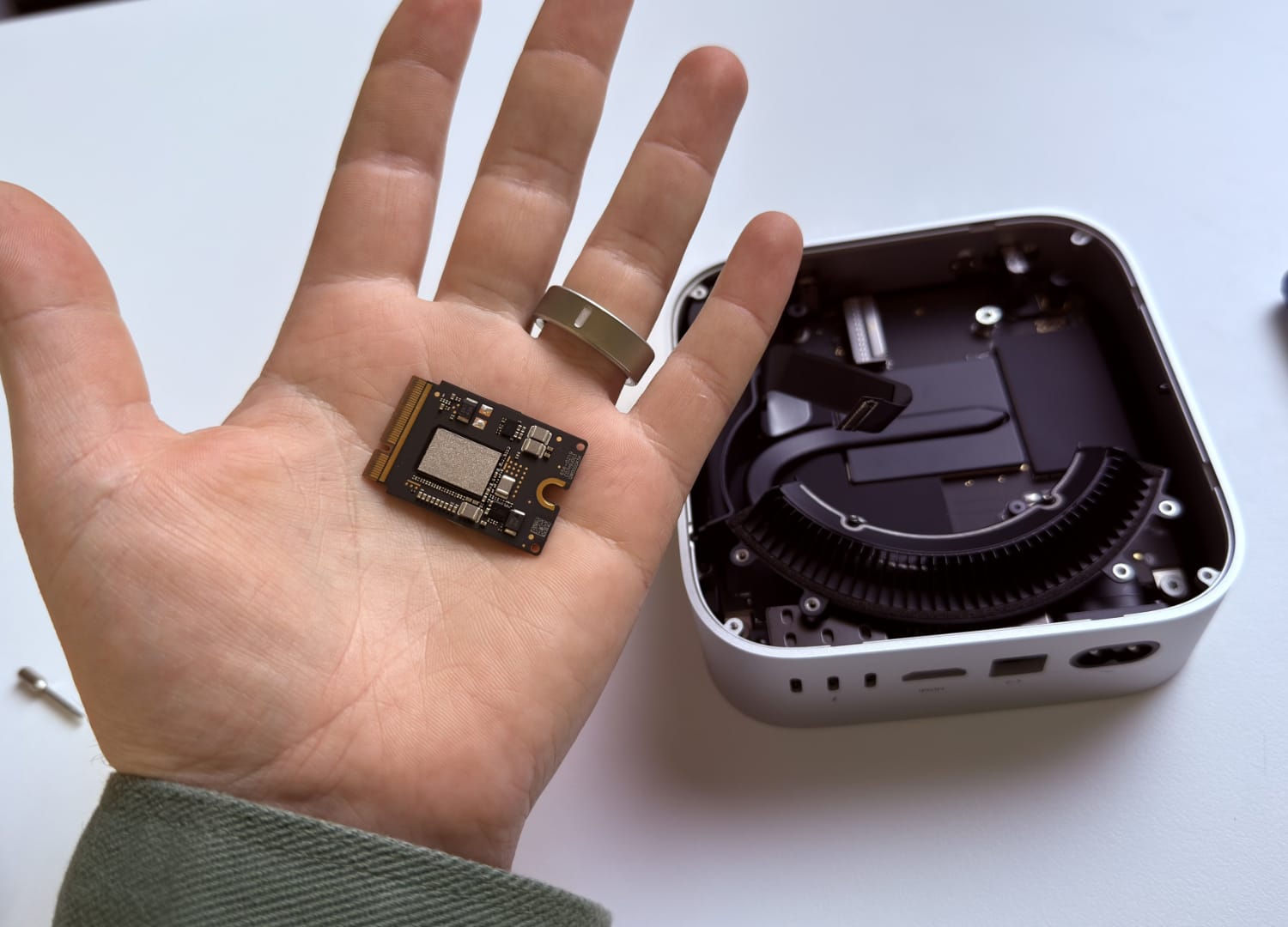The new Mac mini has officially arrived, featuring Apple’s M4 ($579.99 currently on Amazon) and M4 Pro processors. As mentioned in earlier discussions, Apple has revamped the design of this mini-PC, leading to an unconventional placement for the power button.
Removable Storage Capabilities
Interestingly, this updated model allows for removable storage, which is a departure from past Apple M-based versions. In this way, the new Mac mini shares similarities with the Mac Studio. However, Apple continues to use proprietary storage formats instead of standard M.2 2230 or M.2 2280 SSDs.
While expanding storage on the new Mac mini is feasible, it involves technical complexities. That said, things could change in the future. Recently, Polysoft Services rolled out the first range of third-party drives for the Mac Studio, which we have previously reported on.
SSD Module Compatibility
In brief, these ‘Studio Drive’ SSDs won’t work with the newest Mac mini. PolySoft Services is looking to support this mini-PC sometime down the line. Although they haven’t provided an exact release date, they shared these comments online:
Last week brought an unexpected delight: like many, we were thrilled to learn that the new Mac mini M4 has a replaceable SSD module capacity of up to 2TB, while the M4 Pro can accommodate an SSD module of up to 8TB.
These modules are not only physically distinct from one another but also differ from the modules for our Mac Studio M1 and M2. Nevertheless, they are nearly identical in terms of electronic specifications, so we are already gearing up to work on them, benefiting from our existing knowledge of the Mac Studio modules!
Future Plans for SSD Modules
Of course, our primary focus will be on delivering modules for the Mac Studio, but we are also commencing work on the Mac mini M4 modules.
It’s a bit premature to confirm, but we’re likely to initiate another campaign for SSD modules for the Mac mini M4 and M4 Pro when we have a functional prototype ready for those models!
Kickstarter, Quinn Nelson – Image credit


Leave a Reply